Idea by
Andrea Bit, Maciej Wieczorkowski
Dividual
Call for ideas 2021
Working gardens
Working gardens
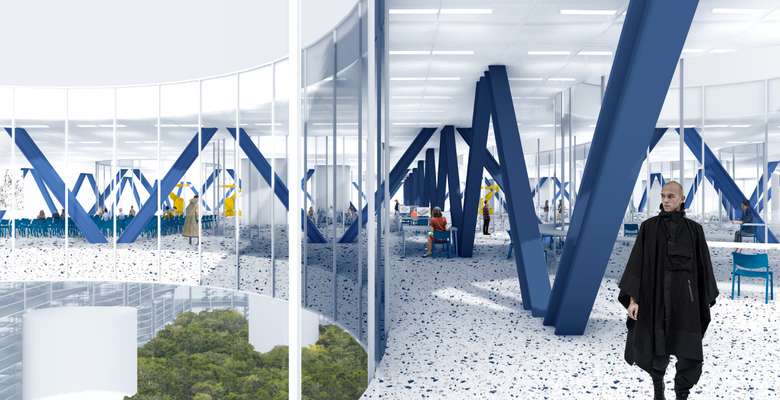
- Systemic changes
The project starts as a response to the current situation of the Dutch urban development, which faces an acute housing shortage while 20% of office space in suburban areas remains vacant.
We suggest the creation of a network of productive campuses which can be compared to modern monasteries, gathering people interested in alternative, sustainable and communal ways of living and working. Each project is designated for a different target group and is a mix of existing building and new additions. This combination provides affordable floor areas and generous shared spaces, limiting the new construction.
Living together is one of the most promising solutions for the future and it proves to be more affordable than standard housing, presenting an interesting solution for the crisis of affordable housing, affecting many cities. A communal way of living can help to reduce the impact humanity has on climate change and on planet Earth in general, while improving the conditions of living.
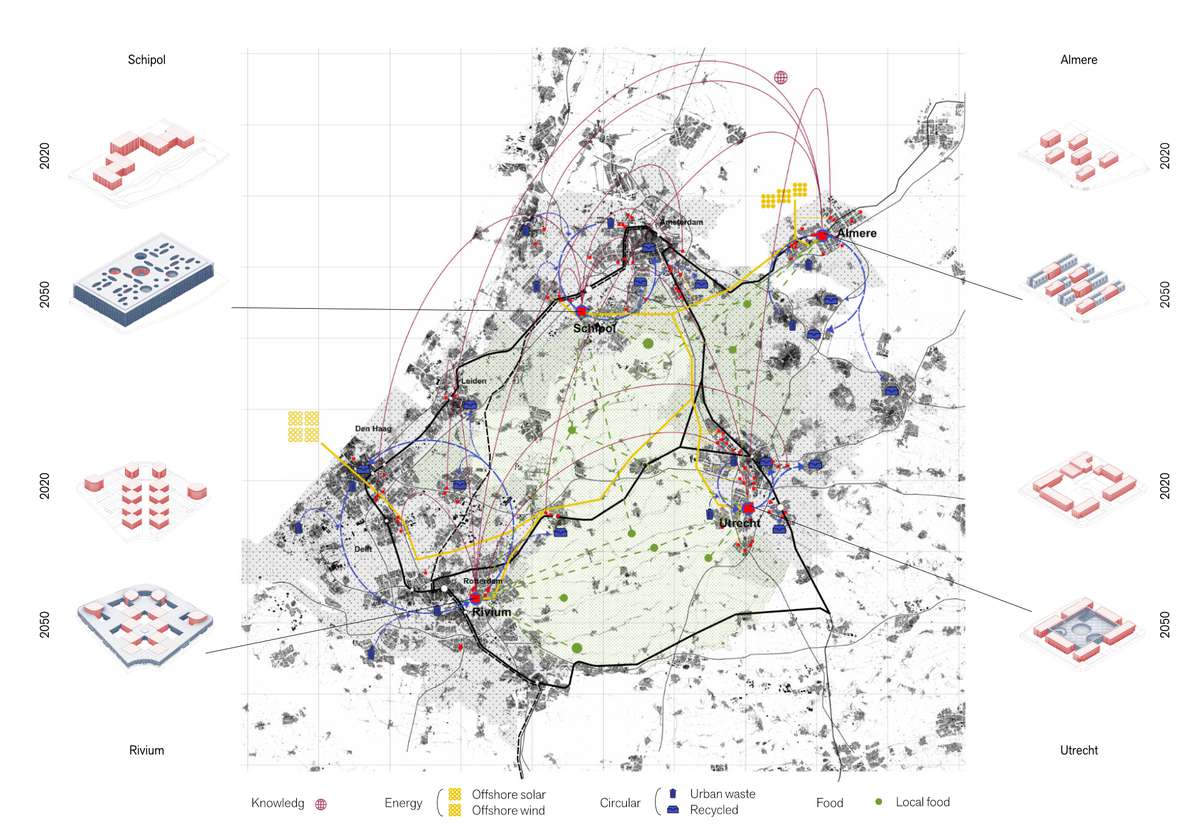
Working gardens create networks, in which resources, knowledge, food and products can be shared in an efficient and sustainable way between urban areas and the countryside. Selected locations exemplify a variety of the external conditions in which office parks are located, making transformation strategies translatable to other sites. The selection exemplifies proximity to different sub centres: Rotterdam, Utrecht, Almere and Schiphol, with each location presenting unique characteristics.
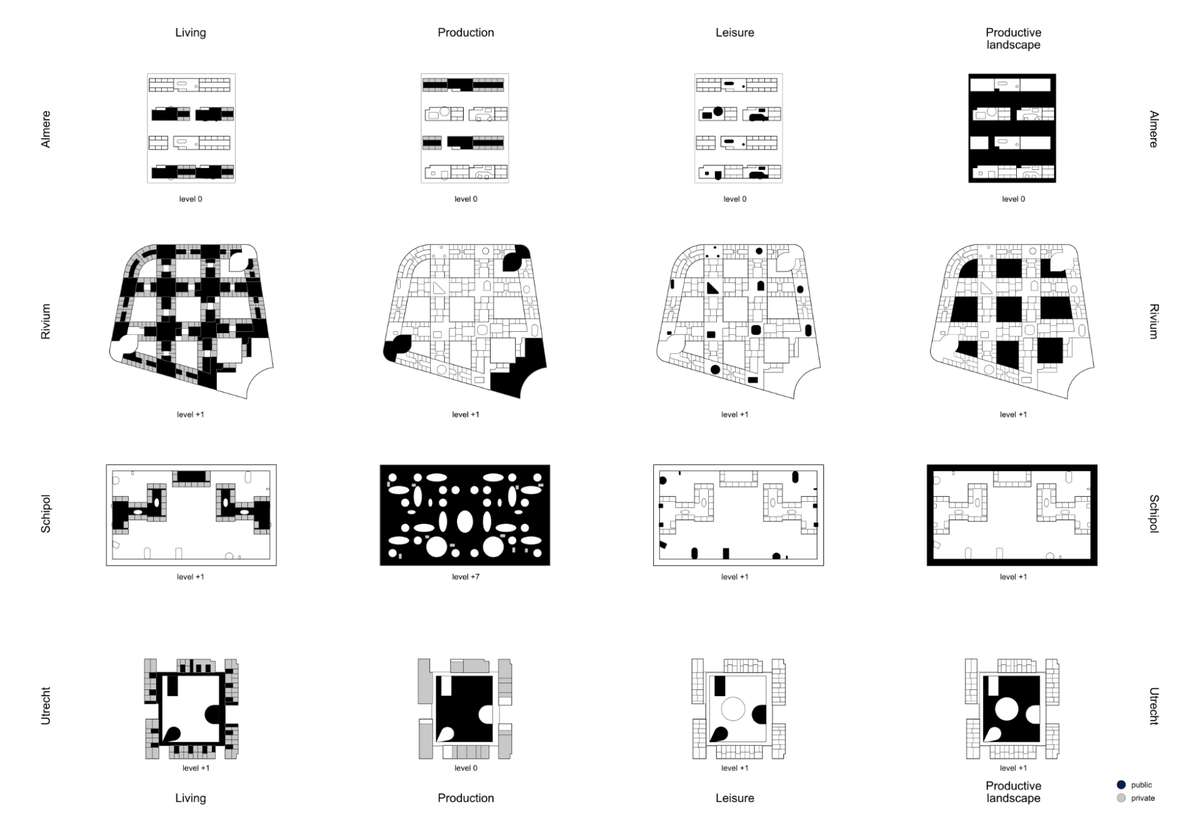
The productive campuses are composed of four programmatic layers: housing, production (material and immaterial), productive landscapes and confetti - spaces especially dedicated to wellbeing and communal activities.
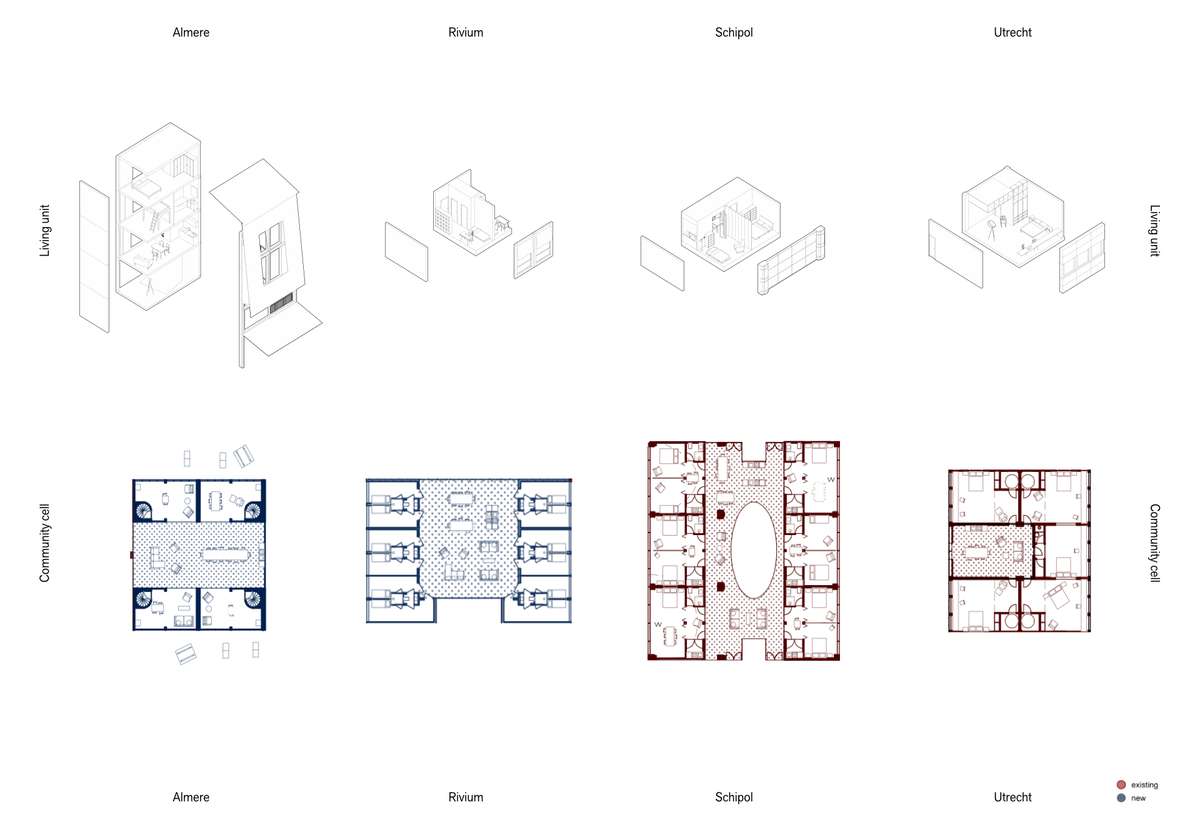
Each campus is built up of an individual living cell arranged in community cells. The living unit can accommodate from one person to an entire family. It is the most private space of each project, being the realm of activities not shared with the community such as sleeping and bathing. The community cell is a group of living units which share communal spaces. Each cell is connected with other cells as well as public space, while keeping a certain degree of privacy and independence.
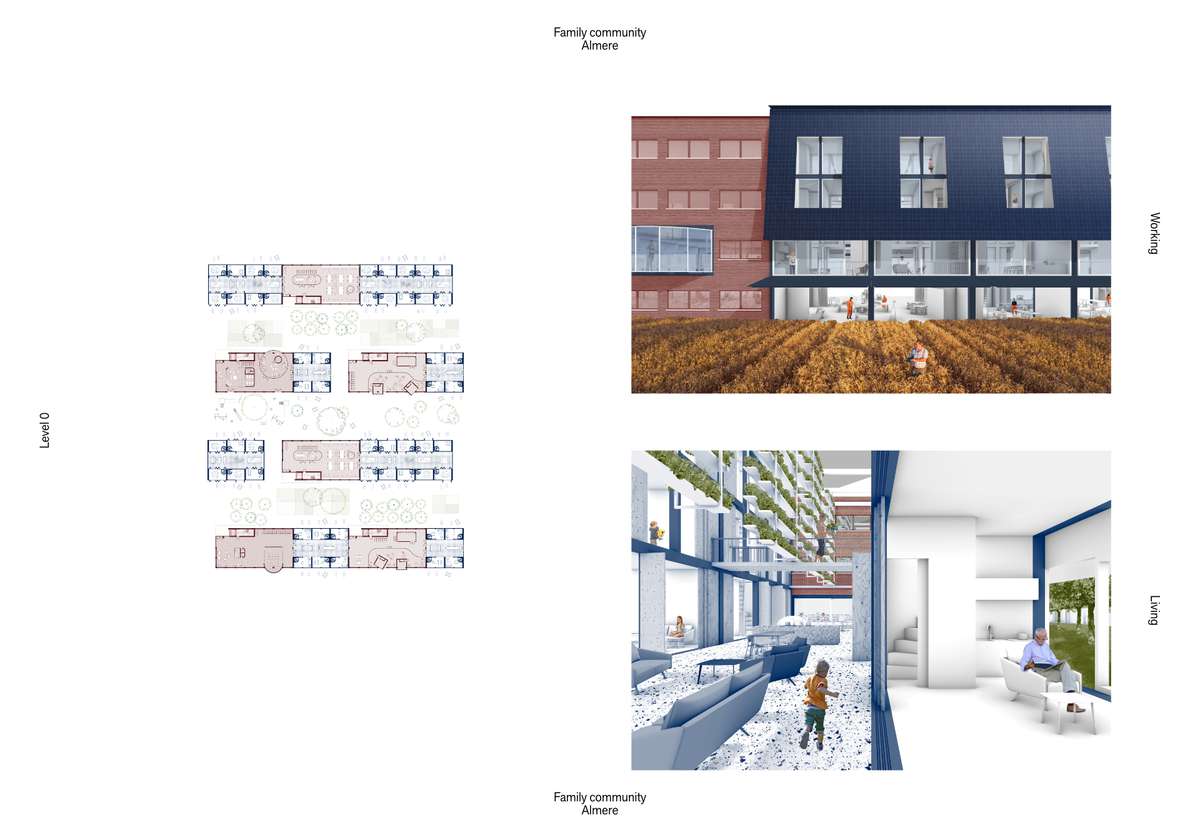
Families and individuals gather and become investors and developers for creating their own housing building. Combining this model of development with transformation of existing, vacant office space allows for designing typologies appropriate for different models of families as well as inclusion of productive spaces. Productive activities focus on freelancing and remote working and the communal character of the investment helps to mitigate the impact of precarious employment conditions.
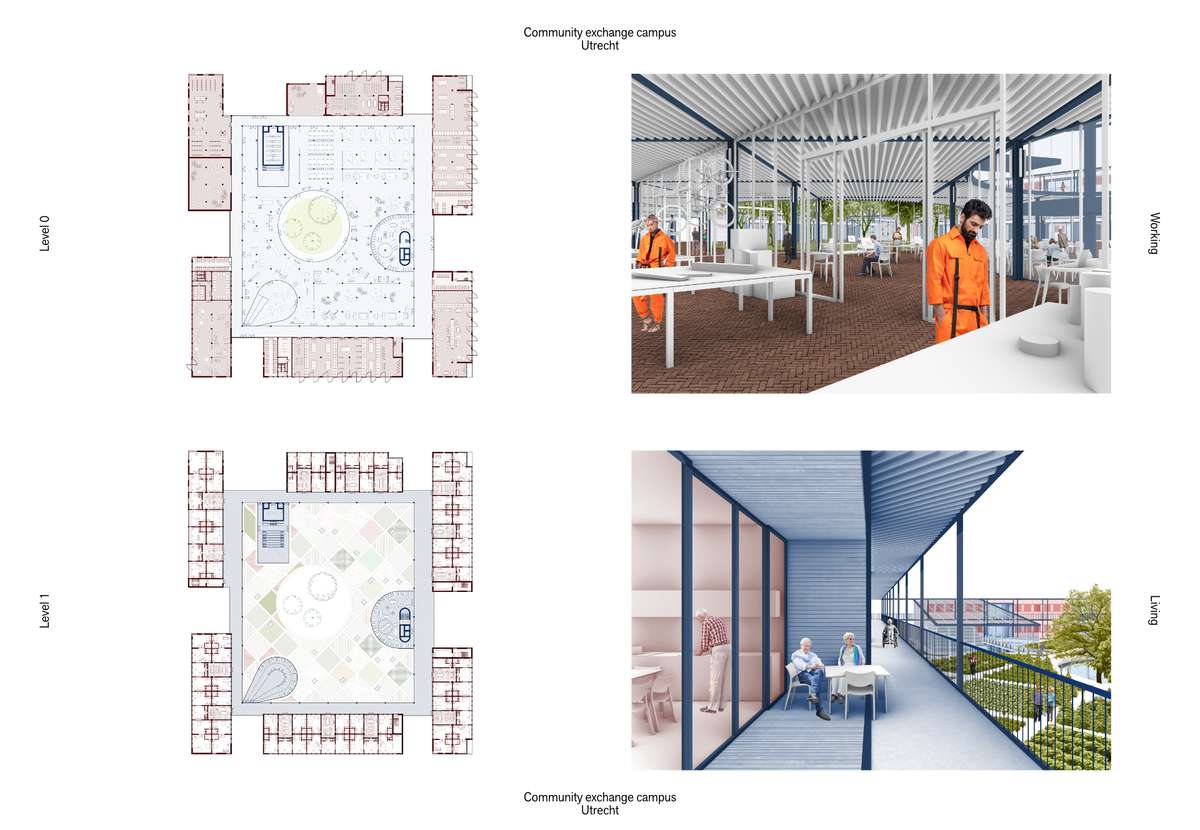
Community exchange centre main focus is to keep elderly integrated in the local community and society in general. The productive activity is related to smaller services involving craftsmanship, exchanging experience and skills as well as children care and education.
Working gardens
Working gardens

- Systemic changes
The project starts as a response to the current situation of the Dutch urban development, which faces an acute housing shortage while 20% of office space in suburban areas remains vacant.
We suggest the creation of a network of productive campuses which can be compared to modern monasteries, gathering people interested in alternative, sustainable and communal ways of living and working. Each project is designated for a different target group and is a mix of existing building and new additions. This combination provides affordable floor areas and generous shared spaces, limiting the new construction.
Living together is one of the most promising solutions for the future and it proves to be more affordable than standard housing, presenting an interesting solution for the crisis of affordable housing, affecting many cities. A communal way of living can help to reduce the impact humanity has on climate change and on planet Earth in general, while improving the conditions of living.
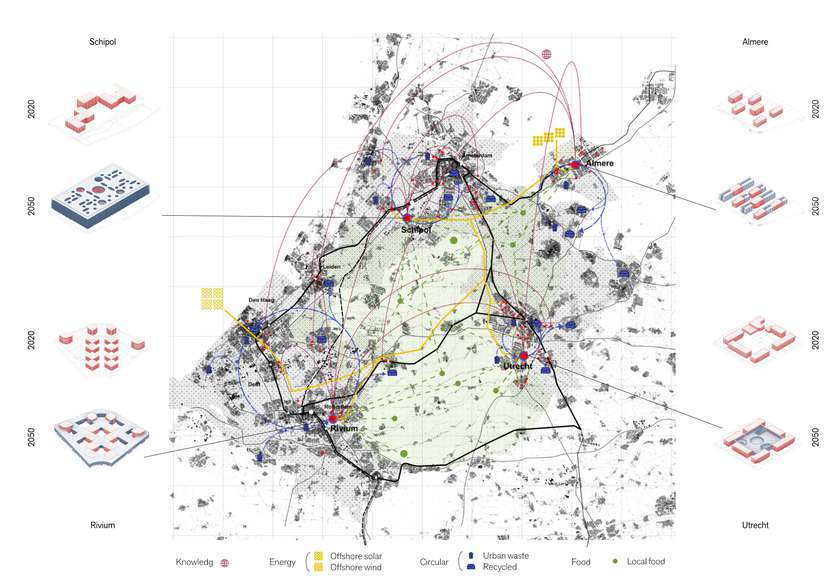
Working gardens create networks, in which resources, knowledge, food and products can be shared in an efficient and sustainable way between urban areas and the countryside. Selected locations exemplify a variety of the external conditions in which office parks are located, making transformation strategies translatable to other sites. The selection exemplifies proximity to different sub centres: Rotterdam, Utrecht, Almere and Schiphol, with each location presenting unique characteristics.
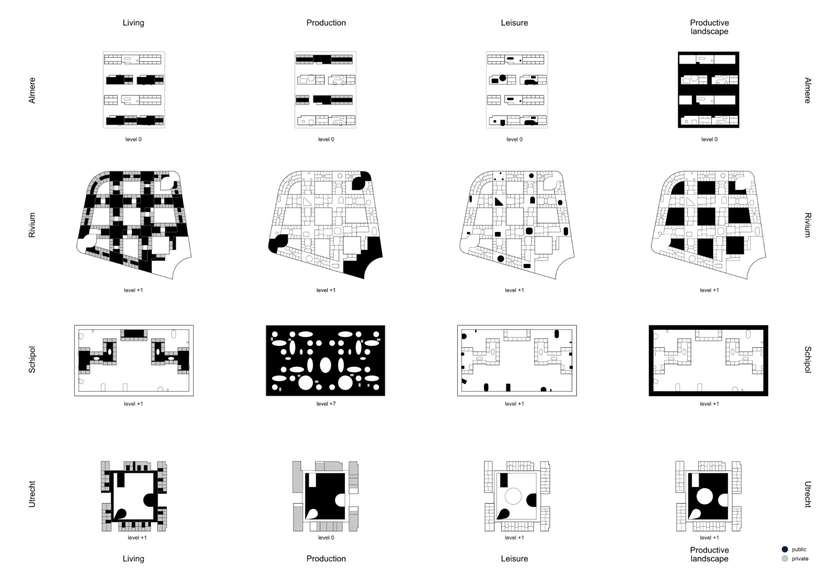
The productive campuses are composed of four programmatic layers: housing, production (material and immaterial), productive landscapes and confetti - spaces especially dedicated to wellbeing and communal activities.
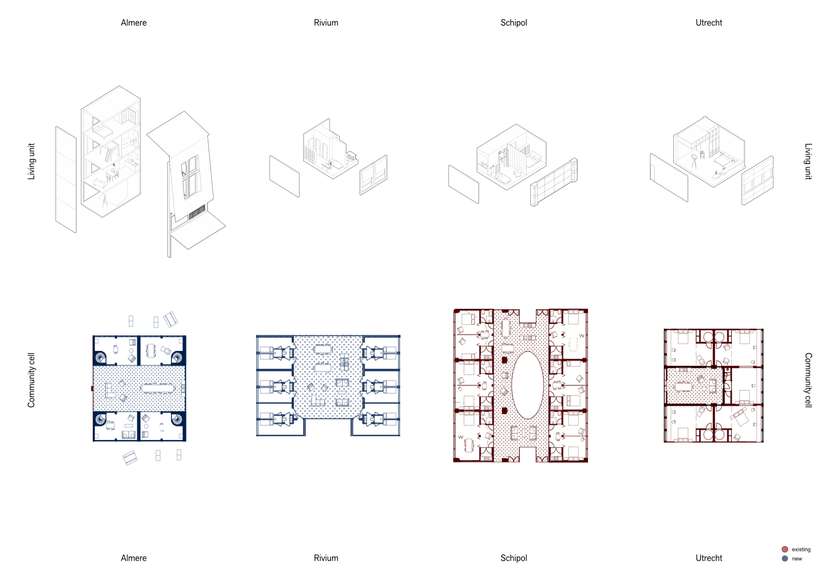
Each campus is built up of an individual living cell arranged in community cells. The living unit can accommodate from one person to an entire family. It is the most private space of each project, being the realm of activities not shared with the community such as sleeping and bathing. The community cell is a group of living units which share communal spaces. Each cell is connected with other cells as well as public space, while keeping a certain degree of privacy and independence.
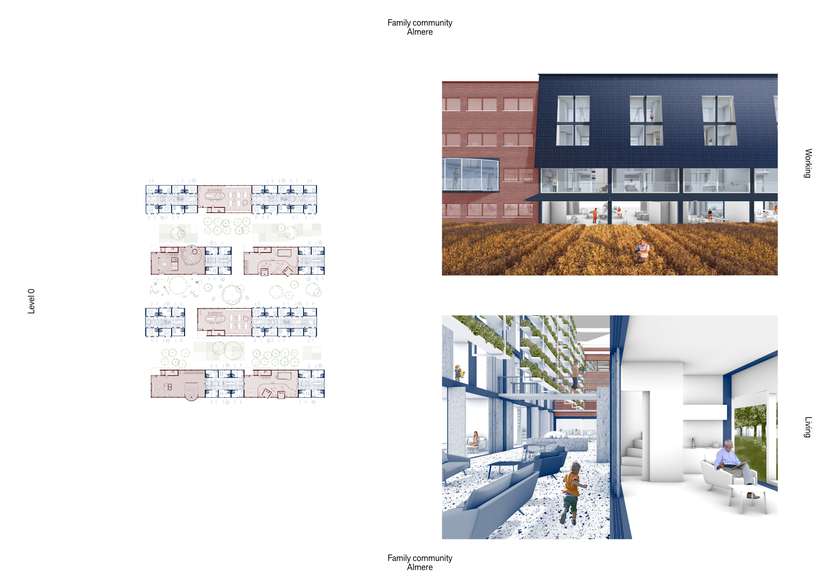
Families and individuals gather and become investors and developers for creating their own housing building. Combining this model of development with transformation of existing, vacant office space allows for designing typologies appropriate for different models of families as well as inclusion of productive spaces. Productive activities focus on freelancing and remote working and the communal character of the investment helps to mitigate the impact of precarious employment conditions.
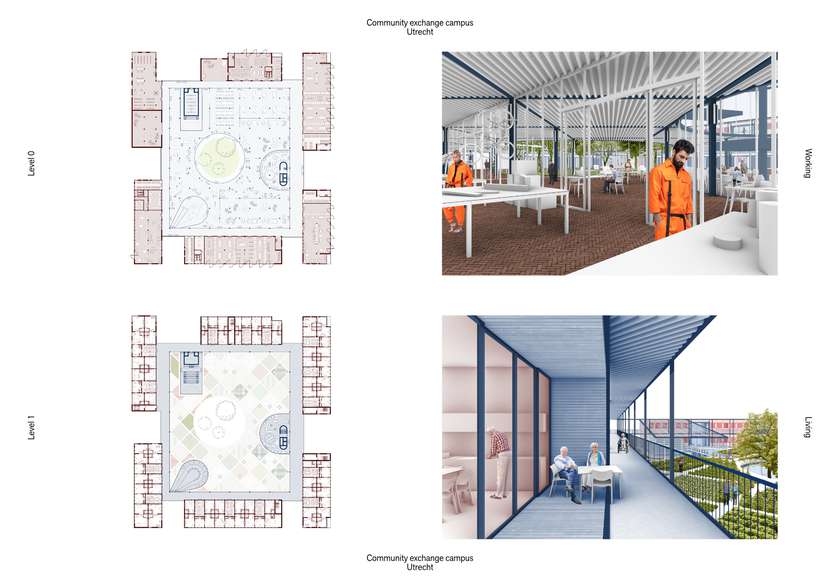
Community exchange centre main focus is to keep elderly integrated in the local community and society in general. The productive activity is related to smaller services involving craftsmanship, exchanging experience and skills as well as children care and education.